Just back from Japan with a few shallow thoughts:
I like the Japanese philosophies of beauty and simplicity, love the food, but can’t get used to the unquestioning, obedient nature of the people. Or that all answers are “yes,” even when it means “no.”
High-tech toilets: I like having a warm seat and a control panel. The electronic sound effects are annoying—fake waterfall or babbling brook sounds. The bidet/washing features are—um, too personal for comment.
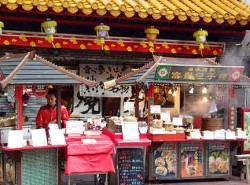
I appreciate super-fast Asian internet, but my hotel wifi ate a bunch of my outgoing email without telling me. I prefer slow and reliable.
Cherry blossoms make up for the gray, cold, windy, rainy, dreary weather on the March/April cusp.
Yokohama has no trash cans. None. After I needed one, I kept looking the rest of the day as I crisscrossed the city. I never found one. Yep, there was a little trash on the ground, but only a little.
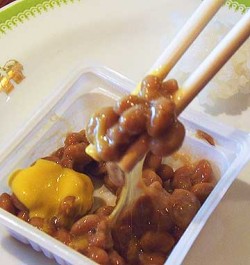
Breakfast: a bowl of rice with 30 different garnishes, 30 different ones every day. Wonderful. The one constant: natto beans, the love ’em or hate ’em fermented beans with a strong ammonia fragrance, which you whip up into a froth of snotty, stringy, viscous liquid, not unlike the stuff okra oozes. When you eat natto beans, the stuff loops from the chopsticks in long, fine, spiderwebby strings that stick to your chin and do feel like actual spider webs a minute or so later when dry.
Astonishing and confounding, how little English is spoken in Japan, including by the young people. What English exists is often amusing. The woman who was assigned to translate our presentation spoke to me beforehand and, pointing to a bald man, innocently called him a skinhead. I saw shops called “Junk Jewels” and another, “Junk & Antiques.” There’s a chain of mini-markets called “Sometimes Fresh.” Passed the “Pay Up Hotel.”
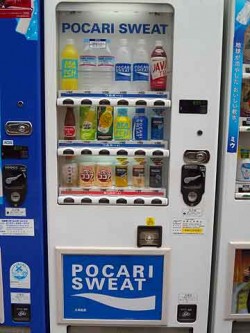
If you’re thirsty on the street, you can stop at a vending machine and buy a bottle of “Pocari Sweat.” Vending machines also sell “Full Supporty” stockings, and tickets for full, hot meals, chosen by plastic display and then picked up from a cook nearby with never a word spoken.
Some very tall pine trees looked like cellphone towers.
A digital sign in front of a tollbooth showed an animated cartoon man waving a flag back and forth.
I’ve been to Japan quite a few times. These thoughts are not cumulative, but specifically from this visit.
![]()

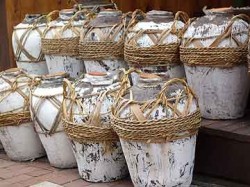



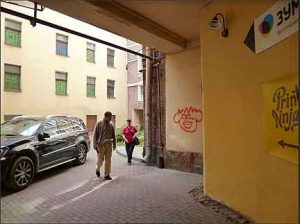
7 Comments
I’ve been to Japan and thanks to Google translations, I am able to find budget hotel rooms by emailing them for the rates – ran it from English to Japanese and back to English again
@carrentalsingapore: actually it’s the Okinawans. And the Cretans.
@Bambi: get what you mean about languages. Sometimes things get Lost in Translationâ„¢. I took the text of this post to Google translations and ran it from English to Japanese and back to English again. And I learned a lot I hadn’t noticed the first time.
– You like to eat outoing mail. Japanese cuisine’s taken a new turn.
– After you saw some Yokohama garbage cans you went looking for the rest of the day but you never found it.
– You called a bald man a harmless skinhead.
– That digital signature before the toll is about a man waving a flag on the animated cartoon.
– All your surveillance device are belong to you.
Japanese food is my all time favorite. It’s very healthy too. That is why Japanese live the longest!
We still live by a sign in an elevator in Kyoto 1966. “do not press buttons which are not good for you” And that was before computers.
Glad to see the natto photo, now we are prepared. We plan to try them this week.
Carolyn, I do think it’s possible to stay in Japan on a budget. Like most places, you can go to the tourist hotels and restaurants, and eat expensive western food; or you can stay local-style and eat in noodle shops for a more affordable, and maybe more authentic visit.
Mik, thanks for your clarification.
When a Japanese person says “yes” (or “hai”) they don’t mean yes in the Western sense of the word – they usually mean “I understand what you say but I don’t necessarily agree with it”. Hence the confusion.
Mik
I have never been to Japan. Heard it is really expensive, so that would keep me away, now. Although I have read that it is one of the highest-paying countries for English teachers.